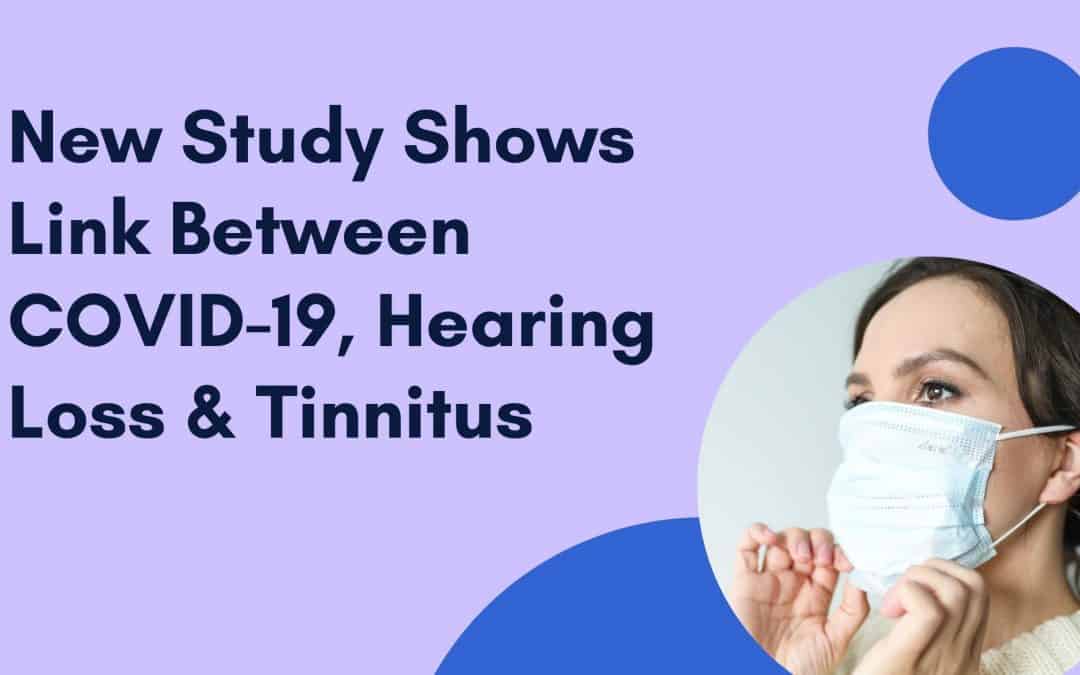Tinnitus is the medical term that describes a ringing-like noise in the ears. According to the American Tinnitus Association (ATA), the causes of tinnitus is the perception of sound in the absence of external noise, and this sound is also described as buzzing, clicking, or humming which can be experienced in one or both ears. Though people experience tinnitus in various ways, there are actually no external sources of sound present. The perception of tinnitus can differ significantly from person to person, describing it as a range of sounds such as ringing, buzzing, or hissing, along with varying durations and intensities. According to the Hearing Health Foundation, at least 10% of people in the U.S. experience chronic tinnitus. Individuals may develop tinnitus in relation to COVID-19, and ongoing research is investigating this connection. Tinnitus is not a medical condition but rather, a symptom of an underlying health concern. Emerging research is currently investigating coronavirus as a potential cause of tinnitus as people are increasingly reporting their experiences with both conditions.
A Possible Link Between Coronavirus & Tinnitus
The link between coronavirus and tinnitus is unclear after recent cases have revealed that people have experienced both conditions simultaneously. Ear infections can block the ear canal and contribute to hearing issues, which should be checked as part of the initial assessment for tinnitus. An ear infection may lead to tinnitus, but it is unlikely to be the sole cause without additional symptoms. Currently, tinnitus is not listed as a Covid-19 symptom by the World Health Organization or the Centers for Disease Control and Prevention. But an article recently published by the New York Times, Some Covid-19 Patients Say They’re Left With Ringing Ears, highlights this possible link by exploring recent studies including:
-
- Journal of International Audiology, published in March 2021: researchers evaluated 60 cases of Covid-19 and found that 15% of adults with the virus also reported symptoms of tinnitus. Researchers are currently following up with the participants to learn more about their experience with tinnitus. In discussing these findings, Kevin Munro, professor of audiology (University of Manchester) and co-author of the study said that he received nearly 100 emails after the study was published. The majority of these emails were from people who have also experienced tinnitus and Covid-19.
- Frontiers in Public Health Journal, published late 2020: researchers surveyed 3,100 people with tinnitus and found that 40% of the 237 people who experienced Covid-19 reported that their tinnitus was “significantly exacerbated”. Researchers suggested that Covid-19 has amplified various factors that could explain how tinnitus could be worsened. This includes producing stress, increasing isolation and loneliness, increased consumption of coffee and alcohol as people are spending more time at home and are also more stressed etc. These realities tend to trigger tinnitus, worsening the symptom. Many conditions, including COVID-19, can lead to both hearing loss and tinnitus, and sudden changes in hearing should be promptly evaluated.
- Though lead agencies in the United States have not listed tinnitus as a Covid-19 symptom, the United Kingdom’s National Health Service has. Along with fatigue, shortness of breath, and dizziness; tinnitus is also on the list of long Covid-19 symptoms. Viral infections can produce auditory issues, activating tinnitus. Additionally, researchers have also suggested that medications taken in response to Covid-19 could also be contributing to tinnitus. This emerging correlation is actively being studied and researched. Imaging tests like MRI, CT, and ultrasound are used to identify underlying structural issues or medical conditions causing tinnitus symptoms.
Tips to Manage Tinnitus with Sound Therapy
Tinnitus can be experienced mildly to severely, significantly disrupting daily life. Hearing aids can be part of sound therapy devices used to help individuals cope with tinnitus. As more research shows that Covid-19 could severely worsen tinnitus, it is important to practice strategies that provide relief. Damage to the inner ear can alter nerve signals to the brain, creating the perception of sound even when no external noise is present. A few tips you can integrate daily to alleviate anxiety from tinnitus include:
-
- Reduce Stress: stress is a major contributor to tinnitus so finding ways to manage stressors effectively can provide relief. There are various ways you can increase relaxation; calming activities can help the muscles relax and enhance breathing which can reduce tinnitus. A few things to try are yoga, meditation, exercise etc.
- Ambient Noise: quietness can actually amplify tinnitus by shifting your focus to the ringing sound. Creating ambient noise is a great way to mask tinnitus and take your attention off of it. There are different ways to do this including using a white noise machine, playing soft music in the background, turning on the television etc. Sound therapy is an effective treatment option for managing tinnitus, and you can implement it at home using devices like fans, white noise machines, or sound therapy apps and playlists.
- Protect Hearing: wearing protective gear like ear plugs, headphones, and earmuffs to reduce the amount of noise you absorb which can reduce tinnitus.
- Get Adequate Sleep: tinnitus often takes a toll on sleep. It prevents people from receiving restful and long-lasting sleep which then exacerbates the tinnitus. To intervene, you can create the best possible conditions for adequate sleep: create a sleep schedule, have comfortable bedding, establish the best lighting, avoid using screens prior to sleeping (at least 30 minutes) etc.
- Increase Physical Activity: daily exercise helps reduce stress, improves mood, enhances sleep etc.
- Reduce Consumption: specific substances like nicotine, caffeine, and alcohol can worsen tinnitus so reducing your intake can be a useful way to manage tinnitus.
If you have experienced changes in your hearing or the frustrating sounds of tinnitus, we’re here to help! Contact us today for a consultation.

